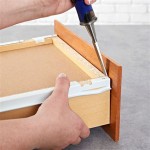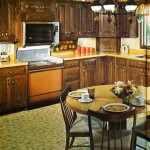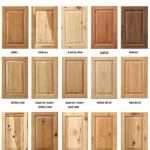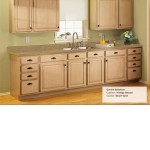Essential Aspects of Baby Proofing Kitchen Cabinets
As your little one explores their surroundings with newfound curiosity, it's crucial to ensure your home is a safe haven for their adventures. The kitchen, with its enticing cabinets and drawers, can pose potential hazards if not properly baby-proofed. Here's a comprehensive guide to help you safeguard your kitchen and keep your child safe and secure.
1. Cabinet Locks: A Must-Have Defense
Cabinet locks are essential in preventing curious toddlers from accessing potentially dangerous items. Choose locks that are easy for adults to operate but difficult for children to unlock. Magnetic or adhesive locks offer a secure and convenient solution. Place them high on cabinet doors out of reach of little hands.
2. Drawer Latches: Keeping Drawers Shut
Similar to cabinet locks, drawer latches are designed to keep drawers securely closed. Look for latches that are flush with the drawer surface to prevent them from becoming a tripping hazard. Install latches on all drawers, especially those that contain cleaning supplies or sharp utensils.
3. Corner and Edge Protectors: Safeguarding Sharp Edges
Kitchen countertops and furniture often have sharp edges that can cause injuries. Corner and edge protectors provide a soft barrier between your child and these potential hazards. Choose protectors that blend seamlessly with your kitchen décor and provide ample coverage.
4. Appliance Locks and Covers: Securing Potential Dangers
Appliances like stoves, ovens, and dishwashers pose significant risks to toddlers. Install appliance locks to prevent your child from turning them on or opening their doors. Additionally, use stove and oven covers to keep knobs and buttons out of reach.
5. Cord Management: Eliminating Trip Hazards
Loose appliance cords can create tripping hazards for young children. Secure cords with cord organizers or tape them to the back of appliances to keep them out of sight and reach. Avoid using long, dangling cords that can wrap around your child's neck.
6. Safety First: Avoiding Toxic Substances
Store all cleaning supplies, detergents, and other potentially toxic substances out of reach in high cabinets or locked areas. Never leave these products on the floor or in low drawers where your child can access them.
7. Regular Inspections: Ensuring Ongoing Safety
Regularly inspect your kitchen for any loose locks, latches, or covers. Make sure all safety measures are functioning correctly to ensure your child's ongoing protection. As your child grows and becomes more mobile, readjust locks and latches to maintain a safe environment.
Conclusion
Baby proofing your kitchen cabinets is an essential step in creating a safe and nurturing home for your little one. By implementing these simple yet effective measures, you can prevent potential accidents and give your child the freedom to explore their surroundings with peace of mind. Remember to prioritize safety first and make baby proofing an ongoing practice to ensure your child's well-being every step of the way.


Our Favorite Baby Proofing Tools Reviews By Wirecutter

How To Babyproof Your Kitchen Step By

10 Best Cabinet Locks For Babyproofing Of 2024

7 Baby Proofing Tricks Every Mom Needs To Know

Guide To Babyproofing Drawers Other Kitchen Spots

How To Childproof Your Kitchen Keep Little Ones Safe

Our Favorite Baby Proofing Tools Reviews By Wirecutter

Diy Baby Proofing S For Pas Child Guard Slider

Child Proofing Cabinets 11 Effective Baby Friendly Solutions Motherhood Community
Related Posts








